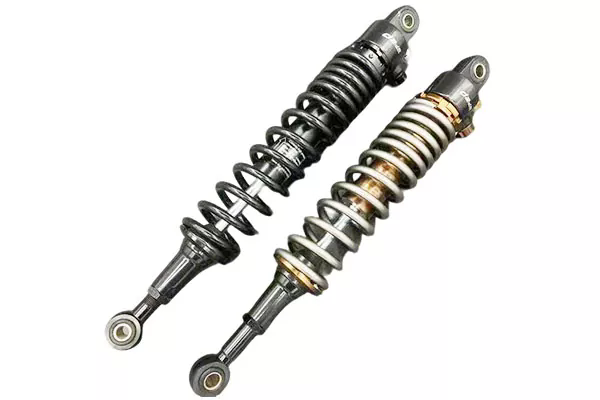What Makes Metal Filters Indispensable for Industrial and Domestic Applications?
2025-11-14
Metal filters are widely recognized as robust and highly efficient filtration solutions for a variety of industrial and domestic settings. These filters are engineered to capture particulate matter, separate liquids from solids, and ensure operational purity in machinery, chemical processing, water treatment, and food production. The central purpose of this article is to explore the advantages, functions, applications, and emerging trends of metal filters, providing a comprehensive understanding for professionals, engineers, and consumers seeking reliable filtration solutions.
What Are Metal Filters and Why Are They Preferred?
Metal filters are filtration devices fabricated from metals such as stainless steel, brass, copper, or aluminum. Unlike traditional paper or synthetic filters, metal filters are reusable, corrosion-resistant, and capable of withstanding extreme temperatures and pressures. They are available in woven mesh, perforated sheet, sintered, and expanded metal forms, offering tailored filtration performance across diverse applications.
Advantages of Metal Filters:
-
Durability: Metal filters maintain structural integrity under harsh conditions, including high temperature, pressure, and corrosive environments.
-
Reusability: Most metal filters can be cleaned and reused multiple times, reducing operational costs.
-
High Precision: Advanced metal meshes allow for precise control over particle size separation, from microns to millimeters.
-
Chemical Resistance: Metals like stainless steel resist acids, alkalis, and solvents, ensuring longevity and stability in chemical processing.
-
Versatility: Suitable for liquid filtration, gas filtration, hydraulic systems, oil purification, and food and beverage applications.
Common Applications:
-
Industrial hydraulic systems
-
Petrochemical filtration
-
Water treatment plants
-
Food and beverage processing
-
HVAC systems and air purification
Metal Filter Technical Specifications
| Parameter | Description |
|---|---|
| Material | Stainless steel, brass, copper, aluminum |
| Filtration Method | Woven mesh, sintered, perforated sheet, expanded metal |
| Mesh Size | 5 µm – 5 mm |
| Operating Temperature | -196°C to 800°C (material-dependent) |
| Operating Pressure | Up to 50 MPa |
| Corrosion Resistance | High (especially stainless steel grades) |
| Reusability | Yes, cleanable and reusable |
| Surface Treatment | Electro-polishing, coating (optional) |
| Standard Dimensions | Customizable based on installation requirements |
How Do Metal Filters Function and Improve Performance?
Metal filters operate on mechanical separation principles. Particles, debris, or contaminants are trapped by the metal mesh or porous structure while allowing the desired fluid or gas to pass through. Depending on the application, metal filters may be installed in-line, as part of a cartridge, or integrated into a system housing.
Key Functional Benefits:
-
Particle Removal Efficiency: The precision mesh or perforation ensures high-efficiency filtration, protecting equipment from damage and reducing downtime.
-
Temperature and Pressure Resilience: Metal filters perform reliably in extreme heat or high-pressure environments where traditional filters fail.
-
Longevity and Maintenance: Unlike disposable filters, metal filters can be backwashed, chemically cleaned, or ultrasonic cleaned, significantly extending service life.
-
Environmental and Economic Advantages: Reusable filters decrease waste production and reduce the cost of continuous filter replacement.
Why Industries Rely on Metal Filters
Industrial sectors increasingly prefer metal filters for their robustness, adaptability, and long-term cost efficiency. In hydraulic systems, for instance, metal filters prevent micron-sized contaminants from causing wear, leakage, or failure, thereby improving equipment reliability. In the food and beverage industry, stainless steel filters ensure hygienic separation of solids without introducing contaminants. Water treatment facilities employ metal filters for sediment removal, protecting downstream equipment and improving water quality.
What Are the Emerging Trends in Metal Filter Technology?
The evolution of metal filters is driven by industrial innovation, environmental sustainability, and increasing performance demands. Companies are continuously developing advanced filtration solutions to meet stricter industry standards and enhance efficiency.
Emerging Trends Include:
-
Nanotechnology Integration: Development of nano-coated metal filters improves filtration efficiency at the sub-micron level while maintaining structural strength.
-
Hybrid Designs: Combining metal meshes with polymer layers or ceramic coatings for enhanced chemical and thermal resistance.
-
Customization and 3D Printing: Additive manufacturing allows for complex geometries, optimized flow channels, and precise filtration control.
-
Smart Filtration Systems: Sensors integrated with metal filters monitor pressure drop, contamination levels, and maintenance schedules in real-time.
-
Sustainability Focus: Reusable metal filters reduce industrial waste, minimize environmental impact, and support circular economy initiatives.
These trends not only enhance the functional performance of metal filters but also align with global sustainability goals and operational efficiency demands.
Common Questions About Metal Filters
Q1: How do I determine the correct metal filter for my application?
A1: Selecting the correct metal filter requires understanding fluid or gas type, operating pressure and temperature, particle size, and flow rate. Consult specifications for material compatibility, mesh size, and structural integrity to ensure optimal performance.
Q2: How can metal filters be maintained to extend their lifespan?
A2: Maintenance includes periodic cleaning using backwashing, ultrasonic cleaning, or chemical cleaning methods, depending on contamination type. Avoid abrasive or corrosive cleaning processes that may damage the mesh. Regular inspection for deformation or clogging ensures consistent performance and longevity.
Metal filters remain a critical component in industrial and domestic systems, offering unparalleled durability, precision, and sustainability. From hydraulic machinery to water treatment and food processing, their advantages and versatile applications make them indispensable in modern engineering solutions.
Dyfab continues to innovate in the production of high-quality metal filters, providing tailored solutions to meet diverse industrial demands. For further details on our metal filter products and expert consultation, please Contact Us.



